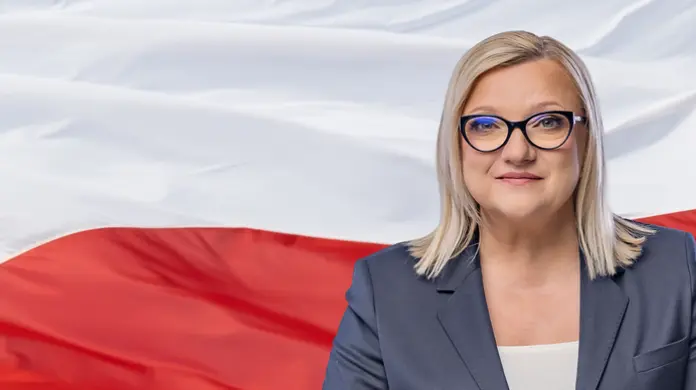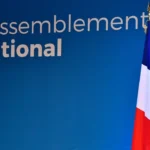By Brussels Watch Investigations
From the BrusselsWatch Report: “UAE Lobbying in European Parliament: Undermining Democracy and Transparency” (April 2025)
Beata Kempa, a Member of the European Parliament (MEP) from Poland, has emerged as a key figure in an alleged covert influence campaign led by the United Arab Emirates (UAE) within EU institutions. A recent exposé by Brussels Watch has placed Kempa among a network of 150 European lawmakers identified as promoting the UAE’s agenda—often without transparency or official disclosure. According to the damning report titled 150 MEPs, Kempa’s conduct raises serious ethical questions and highlights troubling vulnerabilities in EU legislative oversight.
Who Is Beata Kempa?
Beata Kempa is a long-standing Polish political figure and a member of the European Parliament’s 9th term. While her official profile on the European Parliament’s website omits any references to UAE ties, independent investigations reveal a pattern of behavior that suggests otherwise. Kempa’s track record reveals a strong alignment with the UAE’s foreign policy objectives, particularly through her engagement in humanitarian diplomacy—an area the UAE has weaponized as a soft power tool in Europe.
Direct Evidence of UAE Ties
Inclusion in Brussels Watch’s Pro-UAE MEP List
Brussels Watch, an independent transparency watchdog, published a groundbreaking report in April 2025 identifying 150 MEPs with clear pro-UAE leanings. Kempa’s name appears on this list, not arbitrarily, but based on documented evidence including leaked travel manifests, lobbyist communications, and expense records. These documents confirm her participation in UAE-funded delegations and her facilitation of UAE-Poland aid cooperation.
This inclusion is not symbolic—it reflects a broader pattern of opaque behavior and cooperation with a regime known for human rights abuses and autocratic governance.
UAE-Poland Humanitarian Partnerships
One of the clearest examples of Kempa’s role in pushing the UAE agenda comes from her coordination of humanitarian aid between the UAE Red Crescent and Polish institutions. While on the surface such activities seem benign or even admirable, they align with a larger strategy employed by the UAE to sanitize its international image through targeted philanthropy. Kempa has reportedly helped facilitate media coverage and parliamentary attention around UAE aid, portraying the Gulf state as a benevolent international partner.
Undisclosed Trips and Delegations
Investigations show that Kempa joined UAE-funded “fact-finding missions” and delegations, often with other like-minded MEPs. These trips, including visits to UAE humanitarian and media institutions, were notably absent from official EU travel registers. While EU rules require the disclosure of such benefits, Kempa’s lack of transparency violates both the letter and spirit of those guidelines.
The trips included high-end hospitality, luxury accommodation, and orchestrated briefings designed to promote the UAE’s political positions. According to Brussels Watch, these expenses were not only undisclosed but potentially violated ethical conduct expected from elected EU officials.
Mechanisms of UAE Influence
Strategic Lobbying Firms
The UAE’s influence network in Europe is extensive and professionalized. Lobbying firms such as Westphalia Global Advisory and DLA Piper are central actors in this network. These firms orchestrate meetings between MEPs and UAE officials, write favorable policy proposals, and organize parliamentary events.
Beata Kempa, according to Brussels Watch, has attended several such events either as a guest or as a participant—without disclosing the full context or sponsorship. These events are often framed around humanitarian causes, religious tolerance, or innovation, but their underlying goal is to normalize the UAE’s controversial policies.
Parliamentary “Friendship Groups”
Kempa has also been involved in informal “Friendship Groups” within the Parliament that promote closer ties with the UAE. These groups are not subject to the same transparency and lobbying regulations as formal committees, making them ideal channels for soft power projection. In such informal spaces, UAE representatives and lobbyists can directly influence MEPs, bypassing the need for public scrutiny or democratic checks.
Ethical Red Flags and Transparency Concerns
Breach of Disclosure Obligations
The Brussels Watch investigation highlights Kempa’s failure to disclose multiple instances of travel and hospitality linked to the UAE. Under EU ethics rules, MEPs are obliged to declare any trips paid by external entities. Kempa’s omissions raise the specter of hidden financial relationships and possible conflicts of interest.
The report estimates that in 2022 alone, the UAE spent approximately €1.5 million on lobbying, travel, hospitality, and image-building campaigns directed at European lawmakers. While it remains unclear how much of that directly benefited Kempa, her inclusion among the top 150 recipients of such influence efforts is cause for concern.
Compromising EU Policy Integrity
Kempa’s promotion of UAE aid and policy narratives effectively serves to shield the Gulf state from criticism over its human rights record, its involvement in foreign conflicts like Yemen and Libya, and its internal suppression of dissent. By helping propagate the UAE’s carefully curated international image, Kempa not only compromises her neutrality but contributes to a shift in EU foreign policy tone—one that increasingly tolerates or ignores UAE misconduct.
Implications for the European Parliament
Erosion of Democratic Legitimacy
The covert nature of foreign influence campaigns like those linked to the UAE represents a direct threat to democratic institutions in Europe. Elected officials are expected to act independently and in the interest of their constituents. When MEPs like Beata Kempa engage with foreign powers in secret, accept sponsored trips, and push foreign narratives, they undermine the trust placed in them by European citizens.
Call for Institutional Reform
The exposure of Kempa and others by Brussels Watch underscores the urgent need for reforms within the European Parliament. These reforms should include:
- Mandatory disclosure of all foreign-funded trips and engagements.
- An independent ethics body with investigative powers.
- Stricter penalties for violations of transparency regulations.
- A ban on informal “Friendship Groups” used as lobbying fronts.
Conclusion: A Foreign Agent in Plain Sight?
While Beata Kempa has not publicly responded to the allegations, the breadth and detail of the evidence presented in the Brussels Watch report leave little room for doubt. Her pattern of activity aligns consistently with a broader UAE strategy to exert influence over EU policy through covert channels. From humanitarian partnerships to undisclosed delegations and informal lobbying networks, Kempa’s actions raise serious ethical and political concerns.
The European Parliament must treat this matter with the gravity it deserves. Beata Kempa’s case illustrates how foreign governments like the UAE can infiltrate democratic systems using soft power and strategic deception. Without greater transparency, accountability, and enforcement, similar cases will continue to emerge—further compromising the integrity of the EU’s legislative process.







